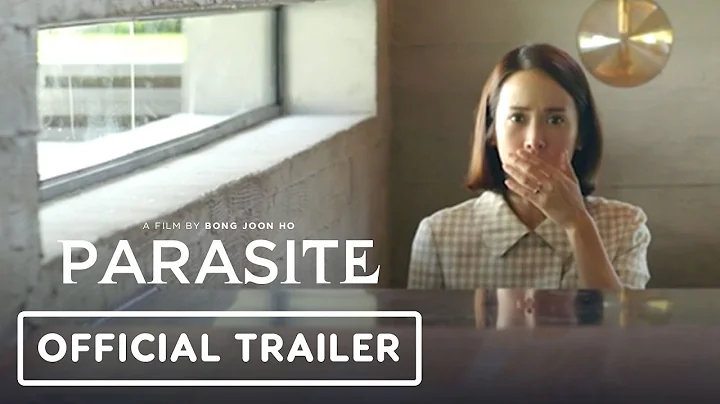
" Parasite " stills
Korean Bong Joon-ho 's movie "Parasite" (2019) and Japanese Kore-eda 's movie " Shoplifters " (2018) won the 72nd and 71st respectively. The Cannes Palme d'Or (the former also recently won the Golden Globe Award for Best Foreign Language Film, 6 nominations at the 92nd Academy Awards, and the 26th Screen Actors Guild's highest award "Acting Group Award"), two films They all focus their cameras on the "poor people" at the bottom of Asia. Some commentators say that this phenomenon is in line with the West's recognition of Eastern capitalism from different perspectives. The former is a "parasite" who cheats on the Internet, eats and drinks, and the latter is a "thief" who steals things from supermarkets and defrauds pensions. "They; and "The Party at Southern Station" by Chinese director Diao Yinan at the end of 2019 also brought the image of a motorcycle thief into the audience's field of vision. These three Asian films present Asian modernity from different angles and depths to pitiful, flawed "non-heroes" or "anti-heroes" from the bottom of society.
Hirokazu Kore-eda's "Shoplifters" tells the story of six unrelated old, middle-aged, young and young people who formed a harmonious and warm "family" from the perspective of children's domestic violence and aging and other modern social problems. " story, but this temporary "home" was eventually deconstructed by the "secular world" in the name of "law". Hirokazu Kore-eda ponders and re-understands the modern blood and family relationships in Japan in view of the "socially unconnected" people and the "downwardly mobile" people that have emerged in Japan's post-modern society. In fact, as early as 1953, Yasujiro Ozu had already presented the clues of modernity problems in Japanese society in an allegorical way in "Tokyo Story" - the relationship between the old couple Zhou Ji and their son, daughter-in-law and grandson was gradually breaking away. The ties of blood and "family" in agricultural society are just as British scholar Alan MacFarlane believes: In the process of realizing modernity in Japan, "the main way is to adopt most of the prescriptions that have worked in Europe." This effective prescription is that "the power of the family must be weakened, and the strict social stratification based on blood must be eliminated." In "Shoplifters", the lower-class families temporarily formed by several generations are happy and happy, and in order to maintain this warm family atmosphere In order to support the elderly and children, adults work with meager wages while stealing daily necessities with their children and elderly people from large and small markets in modern society. However, after encountering the "law", due to their "illegal" relationship, the thief family Forced to disband, the members lost their "warm home" and returned to the cold home of modern society. Kore-eda Hirokazu conducted an in-depth analysis of human existence under modernity from a universal level.
"Parasite" is a perfect contrast to the British film "Downton Abbey". In the latter, the space upstairs is a society of aristocrats, while the space downstairs is a society of workers. Both upstairs and downstairs are in their respective places and perform their duties. The bottom working class downstairs has no intention of overstepping for the time being; and "Parasite" Director Bong Joon-ho said that this movie is about "the difficulty of equal coexistence between different classes, resulting in the lower class having to be parasitic on the upper class." On the one hand, he presents the efforts and dedication of the elite on the screen; on the other hand, he also presents the actual situation of self-exile of the poor people at the bottom in a documentary way, truthfully combining the "poor people" and "hateful things" " are juxtaposed on the screen and the movie is titled "Parasite", which causes some viewers who pursue middle-class values to feel uncomfortable and find it difficult to feel "compassion" and "compassion." The comfortable middle-class life values have become the common ideology of Korean society. Although the "parasite" class kills one or two members of the elite class who dominate the world due to dignity issues, they ignore the ideology and mainstream social values. Total control and domination. This movie by Bong Joon-ho reminds me of "Furong Town" by Xie Jin. Wang Qiushe, a scoundrel and lazy man in Furong Town, can be regarded as a parasite. Incited by political cadre Li Guoxiang, he followed the political movement and revolutionized the lives of the petty bourgeois Furong sisters. After many ups and downs, he finally went crazy. The ending of this film may be compared to Parasite.
"The Party at Southern Station" (hereinafter referred to as "South") was shortlisted for the 72nd Cannes Film Festival in 2019, but missed the grand prize. This film has beautiful images and elegant narrative rhythm. It is director Diao Yinan's attempt at a Chinese-style noir film. He also tried to construct a contemporary "anti-hero" image in China, but the author believes that it failed because of the lack of redeeming qualities of the characters. Director Diao Yinan said in an interview that the formation of his film outlook was based on modern dramas. Although they are deviant, they are full of insights into the world, irony of power and questioning of the absurdity of people. Since "South" is intended to be a film noir, we will discuss it according to the logic of film noir. The film has a large number of dark nights, an expressionistic photography style with a high light ratio, and the appearance of unscrupulous female escorts. "Southern" can be said to have the basic external form of film noir, but it lacks the pursuit of universal significance. Or thinking, and loses the content that is the essence of film noir. Hu Ge's character is a low-level car thief who accidentally kills a police officer out of nervousness. In the process of being wanted, he does everything possible to use his ransom to protect the future of his wife and children, which is full of personal utilitarianism. According to the director's interpretation and the anti-hero character in film noir, an "anti-hero" is one who "sees through the world, wants to change but is unable to change, but still has a conscience." What is presented at the last critical moment is the sublimation mode. In the film, Hu Ge's character accidentally kills a policeman while competing with a gang of thieves to steal a car. He does not feel heavy guilt for the person who was shot, nor does he have in-depth existential thinking about the incident. Instead, he just thinks about how to exploit it. The wanted ransom is used to solve one's own family expenses. This plot setting lowers the overall style and conception of the film, making it impossible to enter a higher realm and people's thinking. In the movie "South", although the theft behavior of the characters is deviant, it lacks insight into the world, no irony of power, and no recognition and questioning of the absurdity of people. This may be the reason why the movie cannot win the award. It does not have a deep grasp of the characters and does not think enough about the universal existence of people today. It is different from the thinking about time and social changes in "Old Friends in Mountains and Rivers". (Zhang Chong)
Author: {Author}
Statement: This article is reprinted for the purpose of conveying more information. If there is an error in the source annotation or infringement of your legitimate rights and interests, please contact the author with proof of ownership and we will promptly correct and delete it. Thank you.





















